News & Media
Mellon Grant Will Support and Enhance Asian Studies at DePauw and Wabash
January 4, 2011
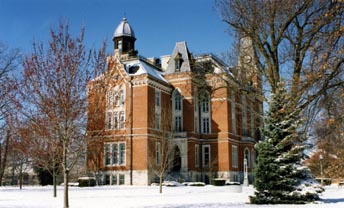 January 4, 2011, Greencastle, Ind. — DePauw University and Wabash College will use a four year, $700,000 grant from The Andrew W. Mellon Foundation to support and enhance DePauw's Asian Studies program, facilitate the creation of an Asian Studies program at Wabash, and create new synergies between the two liberal arts colleges, located just 27 miles apart from one another.
January 4, 2011, Greencastle, Ind. — DePauw University and Wabash College will use a four year, $700,000 grant from The Andrew W. Mellon Foundation to support and enhance DePauw's Asian Studies program, facilitate the creation of an Asian Studies program at Wabash, and create new synergies between the two liberal arts colleges, located just 27 miles apart from one another.
"DePauw and Wabash may be known as rivals, but there is great mutual respect between us," says Brian W. Casey, DePauw's nineteenth president. "The grant we're announcing today will enhance teaching and learning at both colleges and allows the institutions to benefit from each other’s many strengths and our geographical proximity. I am very pleased about what this project will mean for the faculty, students, and alumni of both Wabash College and DePauw University."
"Though Wabash and DePauw have occasionally cooperated in the past, through this project we will 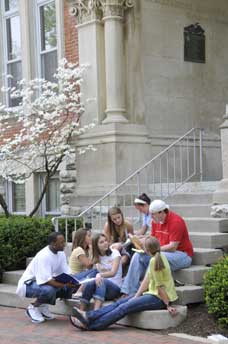 create a truly historical collaboration," adds Patrick White, president of Wabash College. "Nothing like this has been attempted before. This is a project that will not only engage faculty in study and growth but will also transform the culture of interaction between the faculties of Wabash and DePauw and lay the ground for further collaboration."
create a truly historical collaboration," adds Patrick White, president of Wabash College. "Nothing like this has been attempted before. This is a project that will not only engage faculty in study and growth but will also transform the culture of interaction between the faculties of Wabash and DePauw and lay the ground for further collaboration."
DePauw's Asian Studies program, which was established in 1985 is supported by 13 faculty members teaching in Art History, Chinese Language and Culture, History, Japanese Language and Culture, Mathematics, Philosophy, Religious Studies, and Sociology & Anthropology, and graduates approximately five students each year.
With an initial focus on China that will broaden to include Japan, this four-year effort will include:
- The addition of a new interdisciplinary faculty member at Wabash. Beginning in Fall 2011 this individual will contribute advanced language, culture, and history courses to both the Wabash and DePauw programs.
- Each summer of the four-year grant period, a cohort of four Wabash and four DePauw faculty members will attend a two-week, intensive summer workshop at the East-West Center in Honolulu. In the following year, the eight faculty members will receive summer stipends to enable travel to Asia, language study, and course and scholarship development. Over the grant period as many as 32 Wabash and DePauw faculty will prepare new or revise existing courses, extend their scholarship into new arenas, and travel to Asia. These collegial ties will foster further development and engagement, creating academic and cultural interaction between Wabash and DePauw faculty and students.
- Coordinating course offerings between the two schools, allowing for faculty members and students to teach/take courses on either/both campuses.
- DePauw and Wabash will explore the feasibility of collaborative summer immersion travel and study options in China and Japan to enhance student learning and faculty teaching, building on the already successful collaboration that provides students with the opportunity to study and travel in Ecuador.
- Wabash and DePauw will commit one faculty member
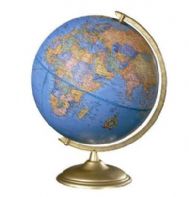 in each year of the grant period to teach a course in support of each other's program. In the second year of the grant, the new Wabash interdisciplinary faculty member will contribute an advanced Chinese language and culture course to the DePauw curriculum, while DePauw contributes either an Art History or History course. The overall goal is to dovetail resources efficiently to enable each institution to offer its best program.
in each year of the grant period to teach a course in support of each other's program. In the second year of the grant, the new Wabash interdisciplinary faculty member will contribute an advanced Chinese language and culture course to the DePauw curriculum, while DePauw contributes either an Art History or History course. The overall goal is to dovetail resources efficiently to enable each institution to offer its best program. - The grant will fund different ways of engaging students with Asian Studies interests from both campuses. A Wabash and DePauw Student/Faculty Mellon Program Committee will help plan co-curricular activities in support of Asian Studies on both campuses. The two colleges will also endeavor to form a network of alumni from both Wabash and DePauw who have established relationships with Asian businesses, educational institutions, and nonprofit and cultural organizations and can identify opportunities for long-term institutional program presence in China and Japan and help raise resources and program visibility in support of student and faculty study and travel.
Throughout the four-year grant period, both institutions will assess the impact on student learning of all activities will be a priority. The Wabash College Center of Inquiry in the Liberal Arts will provide assessment support to ensure that high impact liberal arts teaching 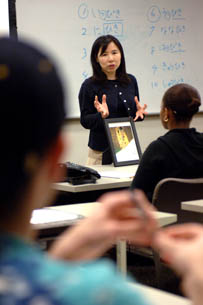 practices remain present and strong. A combination of qualitative and quantitative measures will be employed to determine the impact of program activities on student learning outcomes. The two colleges intend to share this information with other liberal arts institutions through the Center of Inquiry website as a means of contributing to the national conversation about the benefits and costs of strengthening a global curriculum, especially with respect to student immersion experiences.
practices remain present and strong. A combination of qualitative and quantitative measures will be employed to determine the impact of program activities on student learning outcomes. The two colleges intend to share this information with other liberal arts institutions through the Center of Inquiry website as a means of contributing to the national conversation about the benefits and costs of strengthening a global curriculum, especially with respect to student immersion experiences.
Over the past three academic years, DePauw and Wabash's Modern Language departments have worked together to enable Wabash students to enroll in DePauw Chinese, Italian, Japanese, and Russian language courses.
"We live in an increasingly global society, and it’s important that our students have opportunities to learn first-hand about other cultures and even live among their people," says Dr. Casey. "I thank my good friend, President White, and the many people at DePauw and Wabash who have worked to prepare this proposal. The grant has the opportunity to transform the way our two campuses interact in innumerably positive ways."
The DePauw University - Wabash College Mellon Asian Studies grant will be guided by members of a steering committee, comprising:
From DePauw:
Hiroko M. Chiba, Associate Professor of Modern Languages (Japanese) and
Director of the Asian Studies Program; David T. Harvey, Vice President
for Academic Affairs and Percy L. Julian Professor of Chemistry and
Biochemistry; Robert P. Hershberger, Tenzer Family University Professor
in Instructional Technology, Associate Professor of Modern Languages
(Spanish), and Chair of the Modern Languages Department; Sherry J. Mou,
Associate Pro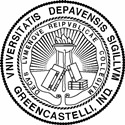 fessor of Modern Languages (Chinese); and Paul B. Watt,
Walter E. Bundy Professor of Religious Studies, Professor of Asian
Studies and Chair of the Religious Studies Department.
fessor of Modern Languages (Chinese); and Paul B. Watt,
Walter E. Bundy Professor of Religious Studies, Professor of Asian
Studies and Chair of the Religious Studies Department.
From Wabash:
David S. Blix, Associate Professor of Religion; Stephen R. Morillo, Professor of History; Gary A. Phillips, Professor of Religion and Dean of the College; V. Daniel Rogers, Associate Professor of Modern Languages; Richard Warner, Associate Professor of History and International Studies Coordinator; and Kealoha L. Widdows, John H. Schroeder Interdisciplinary Chair in Economics and Asian Studies Coordinator.
Contact Us
Communications & Marketing

Bob Weaver
Senior Director of Communications
- bobweaver@depauw.edu
- (765) 658-4286
-
201 E. Seminary St.
Greencastle, IN 46135